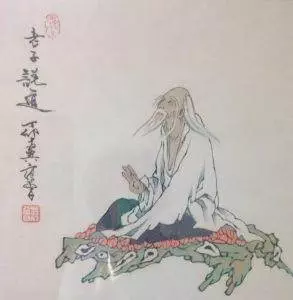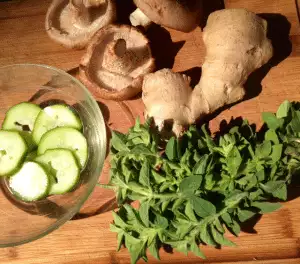-
 Art of Wellness Acupuncture & Traditional Chinese Medicine (TCM)11704 Wilshire Blvd, Suite 295, Los Angeles, CA, 90025
Art of Wellness Acupuncture & Traditional Chinese Medicine (TCM)11704 Wilshire Blvd, Suite 295, Los Angeles, CA, 90025
myartofwellness@gmail.com310-451-5522 Office Hours
MonClosedTue7:30 am --4 pmWed7:30 am --4 pmThu7:30 am -- 4 pmFri7:30 am -- 4 pmSat7:30 am -- 4 pmSunClosedOur office opens from Tuesdays to Saturdays 7:30 am to 4 pm, will be closed on Memorial day, Independent day, Labor day, Thanksgiving day, Christmas and New year.
-
Recent Posts
- Chinese New Year 2026: Year of the Horse
- Acupuncture and TCM Treatment for Perimenopause Symptoms
- How to Treat Insulin Resistance With Acupuncture and TCM
- How to Treat Metabolic Syndrome With Acupuncture and TCM
- How to Treat Syncope With Acupuncture and TCM
- How to Treat Thoracic Outlet Syndrome With Acupuncture and TCM
- How to Treat Dupuytren’s Contracture With Acupuncture and TCM
- How to Treat Nutcracker Syndrome With Acupuncture and TCM
- How to Treat Rosacea With Acupuncture and TCM
- How to Treat Perioral Dermatitis With Acupuncture and TCM
- Lymphatic Drainage With Acupuncture and TCM
- How to Treat Turf Toe With Acupuncture
- How to Treat Nerve Pain With Acupuncture and TCM
- How to Treat Watery Eyes With Acupuncture and TCM
- How to Treat Ovarian Cysts With Acupuncture and TCM
- How to Treat Dystonia With Acupuncture and TCM
- Sign up to receive news and updates and get my free report:“The Top 10 Reasons to Try Acupuncture”

December 2025 M T W T F S S 1 2 3 4 5 6 7 8 9 10 11 12 13 14 15 16 17 18 19 20 21 22 23 24 25 26 27 28 29 30 31
Herbal Medicine
Herbal Tonics for Digestion

Digestive disorders can be simple like flatulence or gas, or they can be much more serious, such as Crohn’s disease. But regardless of the severity of the disease, there is no doubt digestive disorders affect far more people than they should, especially in the United States. A recent survey reports nearly 74 percent of all Americans are living with digestive issues. Most people don’t report it to their doctors either, because they assume it is normal to have gas, bloating or abdominal pain. But these symptoms can be indicators of much more serious underlying problems. continue reading
Herbal Tonics to Reduce Stress
 Stress is something that affects everybody. Stress is defined as a state of mental or emotional tension or strain resulting from demanding or adverse circumstances. This can result in a multitude of symptoms, including headaches, muscle tension, pain, insomnia, worry, anxiety, depression and even disease. And according to a recent survey, nearly 77 percent of all Americans regularly experience physical or psychological symptoms caused by stress (American Institute of Stress, May 2017). continue reading
Stress is something that affects everybody. Stress is defined as a state of mental or emotional tension or strain resulting from demanding or adverse circumstances. This can result in a multitude of symptoms, including headaches, muscle tension, pain, insomnia, worry, anxiety, depression and even disease. And according to a recent survey, nearly 77 percent of all Americans regularly experience physical or psychological symptoms caused by stress (American Institute of Stress, May 2017). continue reading
Herbal Tonics for Allergies
 An allergy occurs when your immune system reacts to a foreign substance, called an allergen. This could be anything from something you inhale to something you touch to something you eat. An allergic reaction may cause sneezing, coughing, watery eyes, a running nose, a sore throat and rashes. In severe cases, allergic reactions can induce something known as anaphylactic shock, which can actually be deadly. continue reading
An allergy occurs when your immune system reacts to a foreign substance, called an allergen. This could be anything from something you inhale to something you touch to something you eat. An allergic reaction may cause sneezing, coughing, watery eyes, a running nose, a sore throat and rashes. In severe cases, allergic reactions can induce something known as anaphylactic shock, which can actually be deadly. continue reading
Wisdom Story from Dr. Tan – Bian Que and the King
 There once was a well-known Chinese physician who lived over 2300 years ago, named Bian Que. One day, the King called Bian Que to him and asked him: “I hear you have two brothers who are also physicians. Can you tell me–who is the best physician? Now, be honest!”
There once was a well-known Chinese physician who lived over 2300 years ago, named Bian Que. One day, the King called Bian Que to him and asked him: “I hear you have two brothers who are also physicians. Can you tell me–who is the best physician? Now, be honest!”
Bian Que answered, “My oldest brother is the best. My second brother is better than me. Actually, I am just average.”
The King was surprised. “But you are the one who is famous throughout China! Why do you say they are better than you?”
Bian Que said, “My oldest brother believes in a lot of prevention. He looks for the source of illness and treats problems before people even feel anything. So, his patients don’t even realize how much he has done for them, and they don’t talk about him much.
“My second brother treats people at the first sign of a disease. They are having some symptoms, so he treats them before they get any worse. Because of this, people notice that he has helped them, and he has become fairly well-known in our home town.
“But me? People come to see me as a last resort, when they are already very sick. I use the strongest herbs, the most powerful acupuncture treatments. I even perform surgeries! In fact, a lot of the time, I can’t do anything to help them because they are already too ill. But sometimes I am able to save someone’s life. That is the kind of thing people like to talk about, so I am the one who has become famous.”
So, the King understood his meaning: the best physician is the one who prevents his patients from becoming sick, not the one who tries to save them when they are already near death.
Eating to Reduce and Prevent Inflammation
By Xiaomei Cai, L.Ac., Ph.D.
We usually think of inflammation as something that affects our muscles and joints, causing them to swell and ache. More recently, science has made it clear that inflammation is also part of what causes poor blood flow through the arteries, causing problems of the circulation and the heart. But, really, the root cause of inflammation is a function of the metabolism, or digestive process. It is the body’s normal defensive response to excess internal heat. Excess heat can be caused by stres s, too many calories, and the wrong kinds of foods.
s, too many calories, and the wrong kinds of foods.
An anti-inflammatory diet is, first and foremost, a low calorie diet. The meaning of “calorie” is, after all, a unit measurement of heat energy. Simply put, ingesting more calories creates more heat in the body. If the calories aren’t being burned through physical activity, then they are stored in the body as excess fat. Fat not only weighs you down, but triggers the immune system, which tries to attack the fat as if it was a foreign substance. Carrying excess fat acts on several levels to create detrimental inflammation within the body.
It is important to pay attention not only to what you eat, and how much, but also how you eat, and when. Many people’s eating habits lead to poor digestion.
Eat sitting down. The body draws both blood and Qi into its center – the stomach and spleen – in order to digest food. Eating while standing or walking, or trying to concentrate on some other problem, draws much-needed energy to the extremities or the brain, away from the digestive process.
Chew food thoroughly. Failure to chew adequately means that the rest of your digestive system has to work harder to break down your food into usable nutrition.
In general, choose more fresh, raw, and lightly cooked foods, and avoid baked, fried and heavily processed foods. These foods retain the heat energy that was used in their preparation, and that creates more heat inside you.
Increase your use of ginger, turmeric and herbs like rosemary, thyme, and oregano, all of which have anti-inflammatory properties. Choose high Omega-fatty-acid fish such as salmon, and good quality fish oils. Eat lots of leafy greens. Avoid coffee, and drink green tea instead. Fermented foods such as pickles, sauerkraut/kimchee, miso and tempeh help to heal and promote good balance in the intestines. Shitake mushrooms are a source of copper, a rare nutrient, important in the prevention of arterial inflammation.
It probably comes as no surprise that we recommend cutting back on unhealthy fats (trans fats, processed cooking oils, and fatty red meat). And avoid sugar as strictly as possible, as sugar consumption leads to insulin resistance and is a major cause of inflammation.
Avoid the nightshade vegetables: peppers, eggplants, potatoes and tomatoes. This includes spices and seasonings made from peppers, such as paprika and red pepper flakes. These foods can irritate the intestines, affecting their permeability and setting off unwanted immune responses. These in turn lead to inflammation, muscle spasms and stiffness.